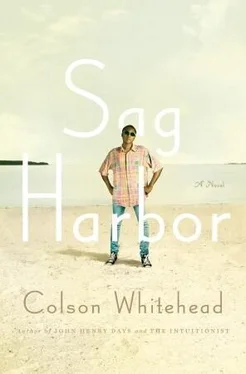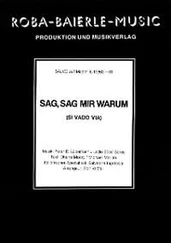The real woods outside of the developments were the true frontier, enigmatic and intimidating. Behind the gas station, or leading out from the paths behind the park, we tramped farther and farther from the roads we knew, each fork thoroughly debated — left is madness, right is the buried treasure, the gold doubloons to be divvied up according to age and status. We stumbled across shotgun shells, remains of fires, crushed beer cans, fresh tracks gouged by motorbikes — dangerous characters were up to inscrutable things between towns. Who had left these things, who was lurking in the shadows? “The KKK” was the usual answer, the reliable if unlikely boogeyman, tossed out there to amp up the feeling of danger. Statistically speaking, there may have been some members of the KKK in the near vicinity — it was the Hamptons, a “resort community” after all, and even the worst America has to offer occasionally need to unwind, catch some rays — but it was unlikely that they were patrolling on horseback, in full getup, complete cracker regalia, behind the dirt trails of Mashashimuet Park. Nonetheless, everybody immediately traded versions of how they were going to outrun the KKK—“I'd be out in front of you dummies with a quickness,” “Knock your ass down to buy me some time”—while I kept silent, thinking of how I was going to save Reggie. Grandiose scenes of self-sacrifice came easily to me, wherein I distracted the Hooded Menace long enough to allow him to escape. He was my little brother.
When we got to the shortcut in question, there was nothing to say beyond Reggie's verdict: “That's messed up.” We were used to emerging from the woods to see a car in the driveway of a shortcut house and having to hightail it back. We were not accustomed to the woods disappearing. The old oaks and chestnut trees and low-lying sticker bushes had been uprooted and cleared. In their stead, moist orange dirt was heaped in piles, and the freshly laid cement foundation gaped at us. It was messed up, some newcomers taking over land we had claimed. It wasn't hard to picture the future. First this lot, then the rest. One by one, the new Sag Harbor would replace the haunted houses in all their forms.
“I hate that,” I said.
“That's messed up,” Reggie repeated.
We took the long way around. Not a lot of people in the Hills, either. Clive's house looked dead. The brown kente-cloth drapes behind the sliding glass doors to his living room were tight. Usually, they were open from May to September, inviting us in. The grass had been cut, though, so this was a promising sign. Maybe next weekend.
“I think we're the only ones here,” I said. Private schools were done for the year, but not public schools yet, and I didn't know about the Catholic schools. Maybe it was just us.
“Ma-a-nn,” Reggie said.
Then we heard a far-off call. We listened and nodded to each other. One two three. Pause. One two. Pause. It was the metallic squeal of a basketball on asphalt, the teenage Morse code of indolent boys that said: I AM OVER HERE. We followed the trail.
We saw NP bouncing about in his familiar rhythm. To observe NP was to witness a haphazard choreography of joints and limbs. His invisible puppeteer had shaky hands, making it seem that NP was always on the verge of busting out into some freaky dance move. Looking back, his condition was probably caused by him trying to keep his freaky dance moves in check, whatever convulsive thing he'd taken notes on at a party the week before and had just finished practicing in his room. That I wouldn't have heard of the dance was a given — the Phillie Bugaloo, the Reverse Cabbage Patch. Hanging out with NP was to start catching up on nine months of black slang and other sundry soulful artifacts I'd missed out on in my “predominately white” private school. Most of the year it was like I'd been blindfolded and thrown down a well, frankly.
Not that I didn't learn anything in school, culture-wise. The hallways between classes were tutelage into the wide range of diversions our country's white youth had come up with to occupy themselves. When I had free time in between engineering my next humiliation, I was introduced to the hacky sack, which was a sort of miniature leather beanbag that compelled white kids to juggle with their feet. It was a wholesome communal activity, I saw, as they lobbed the object among one another, cheering themselves on, and it appeared to foster teamwork and goodwill among its adherents. Bravo! There was also a kind of magical rod called a lacrosse stick. It directed the more outgoing and athletic specimens of my school to stalk the carpeted floors and obsessively wring their hands around it, as if to call forth popularity or a higher degree of social acceptance by diligent application of friction. You heard them muttering “hut hut hut” in masturbatory fervor as they approached. Good stuff, in an anthropological sense. But these things were not the Technotronic Bunny Hop, or the Go-Go Bump-Stomp, the assorted field exercises of black boot camp. And as with DuBois, I knew I couldn't ask what these things were. I had to observe and gather information.
Switch off this, switch on that. We hung out with each other every day, all day, all summer, and then didn't see each other for nine months.
“Benji 'n' Reggie, Benji 'n' Reggie.”
We exchanged friendly outs (“This morning,” “Us, too”) and told him we'd be out for the summer. There was also the language of prison in there, in how long are you out for. Time on the East End was furlough, a day pass, a brief visit with the old faces and names before the inevitable moment when you were locked up again. That hard time that defined the majority of our days. You did something wrong, why else would such a thing like the city happen to you. For a couple of weeks each year us habitual offenders got together and got up to no good before the handcuffs pinched our wrists again. Earlier, I described Sag as a kind of trap, but the place also attracted the language of freedom. I don't know which is worse, the trap or the prison. Either way, you're stuck.
We called him NP, for Nigger Please, because no matter what came out of his mouth, that was usually the most appropriate response. He was our best liar, a raconteur of baroque teenage shenanigans. Everything in his field of vision reminded him of some escapade he needed to share, or directed him to some escapade about to begin, as soon as all the witnesses departed. He was dependable for nonsense like, “Yo, last night, after you left, I went back to that party and got with that Queens girl. She told me she was raised strict, but I was all up in those titties! She paid me fifty dollars!”
Nigger, please.
“Yo, yo, listen: I was walking by the Miller House and I went to take a look at their Rolls and get this, I was like, they left the keys in the ignition. You know I took that shit for a spin, I was like Thurston Howell the Third up in that bitch! With Gilligan!”
Nigger, please.
Shortened to NP because the adults gave us trouble when they heard us using the word nigger . For understandable reasons. Like most authority figures, they had a hypocritical streak, as they used the word all the time, in its familiar comrade sense, but also to distinguish themselves from those of our race who possessed a certain temperament and circumstance. The kind of person that made the announcer on the evening news say, “We have an artist's rendering of the suspect,” quickening your heart. There were no street niggers in Sag Harbor. No, no, no.
But we all had cousins who … you know.
We thought we were being smart with his nickname until one day we were over at NP's house and his mom started getting on his case for some chore or other that he had neglected. He began some elaborate explanation — meteorites had squashed his bike and he couldn't make it home — when she lost her patience and cut him off with a sudden, shrill, “Nigger, please!” Mrs. Nichols's hand shot to her mouth, but it was too late. His nickname had approval at the highest levels. For all we knew, she'd coined it in the first place. One can only imagine watching the boy grow up in your house and knowing you were partially responsible.
Читать дальше












